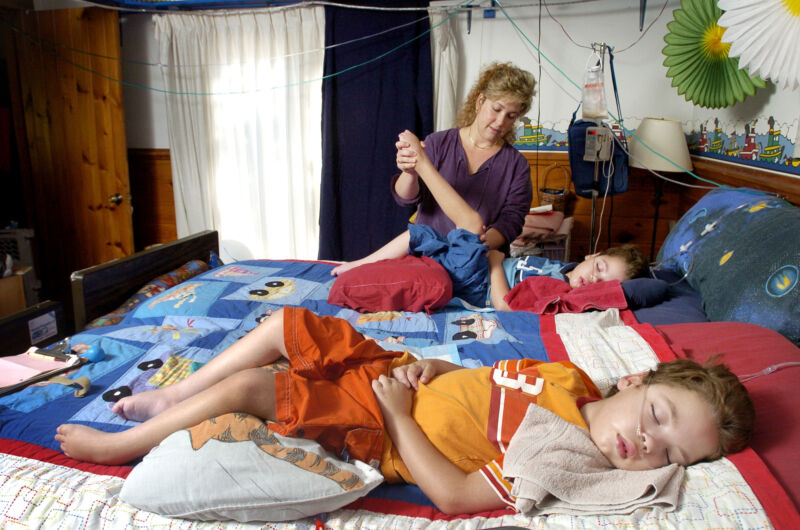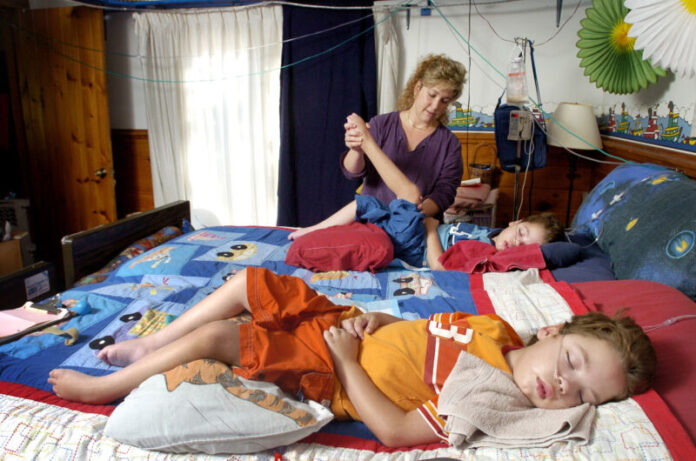
Enlarge / A mother with her twin 6-year-old boys who have metachromatic leukodystrophy, a genetic disease that leaves them unable to move. Photo taken on September 3, 2004. (credit: Getty | John Ewing/Portland Press Herald)
In a medical triumph, US Food and Drug Administration on Monday approved a gene therapy that appears to trounce a rare, tragic disease that progressively steals children's ability to talk, move, and think, leading to a vegetative state and death. For those who begin to slip away in infancy, many die by age 5. But, with the new therapy, 37 children in an initial trial were all still alive at age 6. Most could still talk, walk on their own, and perform normally on IQ tests, which was unseen in untreated children. Some of the earliest children treated have now been followed for up to 12 years—and they continue to do well.
But, the triumph turned bittersweet today, Wednesday, as the company behind the therapy, Lenmeldy, set the price for the US market at $4.25 million, making it the most expensive drug in the world. The price is $310,000 higher than what experts calculated to be the maximum fair price for the lifesaving drug; the nonprofit Institute for Clinical and Economic Review, or ICER, gave a range last October of between $2.29 million to $3.94 million.
The price raises questions about whether state, federal, and private health insurance plans will be able to shoulder the costs. "Unless states have allocated appropriately for it, and looked at the drug pipeline, they may not be prepared for what could be significant cost spikes," Edwin Park, a research professor at the McCourt School of Public Health at Georgetown University, told CNN.
Read 8 remaining paragraphs | Comments
Ars Technica - All contentContinue reading/original-link]




